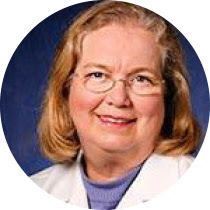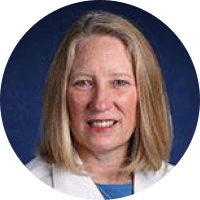WAEH Newsletter – June 2021

WAEH Webinar: Thursday 24 June
Pediatric Eye Care – Coping with The Covid Pandemic in Eye Hospitals worldwide
Moderated by:
Dr. Christine C. Nelson, MD, Board member of the WAEH

Dr. Christine C. Nelson, MD, FACS
Kellogg Eye Center – Ann Arbor, USA
Bartley R. Frueh, M.D. and Frueh Family Collegiate Professor
in Eye Plastics and Orbital Surgery
Professor, Ophthalmology and Visual Sciences
Professor, Department of Surgery, Plastic Surgery Section
Co-director, Kellogg Eye Center for International Ophthalmology
Section Leader, Eye Plastic, Orbital and Facial Cosmetic Surgery
Speaker:
Kellogg Eye Center
What you can and can’t do virtually during Pediatric eye exams
Dr. Pamela Williams
Clinical Instructor, Ophthalmology and Visual Sciences
Kellogg Eye Center – Ann Arbor, USA

Time:
08:00 AM Ann Arbor, Baltimore
13.00 PM London
14.00 PM Stockholm, Rotterdam
21.00 PM – Singapore, Kuala Lumpur
00.00 AM – Melbourne
Date: 24 june 2021

Call for Abstracts now open!
The 15th Annual WAEH meeting
Stockholm, Sweden
5 – 8 September 2021
Looking far and beyond – Learning from other industries and from our peers
Host: St. Erik Eye Hospital
WAEH 15th Annual Meeting themes:
2021 – Forward together – Developing the Eye Care of the Future.
1. The Eye Hospital of the Future
- Background philosophy
- Adaptability to new challenges and technical development
- Designing new eyehospitals
- The building process – To move a new hospital building – lessons learned
2. External Relations – Creating Collaborations between industry, academia and health care for the benefit of our Patients
3. The Eye Care of the Future – Trends and Outlooks
- Telemedicine
- Self-monitoring
- AI – screening
- Digitalization
Call for Abstracts deadline: 30 June 2021
Read more here


2021 – Call for projects
Each year 2 to 3 projects are led by our member eye hospitals to help shape and improve ophthalmic care on a global scale. Each project can be budgeted with a budget of 7.500 euro. This is paid from the fees of the WAEH membership. We would like to invite you again to share your project ideas.
Current projects are the WAEH Medical Outcome project and the WAEH Clinician Burn out project.
What about the Project Groups?
- They are WAEH Member-led
- They collaborate on specific themes from Artificial intelligence to Medical outcomes
- They network and brainstorm via online Zoom meetings to maximise the impact and reach of sharing knowledge during the projects
- They share their lessons learned, knowledge and experience also via the WAEH knowledge hub and via the WAEH newsletter
- They host a round table and present their project during the Annual Meeting
Examples of WAEH projects:
· WAEH Medical outcome project + results
· Development of an international procedure of applying eye drops
· Management of AMD Patients
· RedefinIng the patient flow of Glaucoma patients
Ideas are welcome!
Do you have an idea of something you would like to change or innovate in your Eyehospital? Want to run a WAEH project?
Send in your project proposal! Check out the project proposal format.
For an example, see the project proposal about the Patient Enucleation Education Package – a project ran by Mitchell Wilson from the Royal Victorian Eye and Ear Hospital from Melbourne in the most excellent way: project proposal Patient Enucleation Education Package.
Or contact Maaike van Zuilen: maaike.vanzuilen@waeh.org


On the Hub: WAEH 20 May webinar presentations + recording
The presentations and recording of the 20 May ‘Education in Eye Hospitals’ webinar are now online!
Watch the presentations here
Watch the recording here
Updated Login details – Knowledge Hub
From now on the Hub no longer has a personal login, but now the hub has a central login for all members. You can contact Maaike van Zuilen at: maaike.vanzuilen@waeh.org to request the login details.

3 September 2021
The 32nd annual conference “Orenburg Conference of Ophthalmologists”
Orenburg branch of S. Fyodorov Eye Microsurgery Federal State Institution will hold the 32nd annual conference “Orenburg Conference of Ophthalmologists” on September 3, 2021 and Prof. Alexander Chuprov would like to invite WAEH members to present a video of an interesting eye operation with comments of a surgeon.
The theme is “Innovative approaches in Eye Surgery: cornea, lens, retina”
Length of video: 7 – 10 minutes
It is advisable to give the text sounding off-screen in Word format: The Orenburg Eye Institution will make subtitles for those who don’t understand English.
We are looking for one more WAEH member to participate!
Interested? Send an e-mail to: Maaike.vanzuilen@waeh.org and/or nauka@ofmntk.ru
The deadline is August, 5th
Source: Orenburg branch of S. Fyodorov Eye Microsurgery Federal State Institution


OrBis – The Flying Eye Hospital – The World
Heroes of OrBis: Dr. Javed Farooqui
Dr. Javed Farooqui first joined the Orbis family in 2014 as a staff ophthalmologist on board the Flying Eye Hospital. Now, he’s a consultant at Dr. Shroff’s Charity Eye Hospital in Delhi, India, where he delivers sight-saving treatment and trains fellow ophthalmologists from across the world.
Dr. Farooqui is an Adjunct Consultant at Dr. Shroff’s Charity Eye Hospital – an Orbis partner – where he specializes in cornea and refractive services. Here, he also runs the Eye Care Training academy, which trains residents and fellows in the latest surgical techniques.
Most recently, he has taken a leading role in delivering an eight-week remote learning program as part of our virtual Flying Eye Hospital project. Combining remote learning on Cybersight, with virtual wet lab training on artificial eyes and remote mentoring from Orbis Volunteer Faculty, this innovative program supports local ophthalmologists to develop the skills they need to carry out sight-saving surgery, despite the ongoing impact of the COVID-19 pandemic.
Since the lockdown, the team at Dr. Shroff’s has delivered more than 200 online lectures to ensure they can reach an even larger audience.
“While at Orbis, I met, interacted and worked with trainers and trainees from all over the world, and the common theme for trainees everywhere was the need to improve their clinical knowledge and surgical skill. I feel that Orbis has integrated simulation training in its teaching curriculum, which will surely help standardize training all over the world.”
– Dr. Javed Farooqui, Orbis Volunteer Faculty
Image: Dr. Javed Farooqui – taken from OrBis news article
Read the full article here
Source: Orbis – The Flying Eye Hospital

Clínica Oftalmológica Pasteur – Chili
your children’s visual health
Poor vision decreases school performance
Every child of preschool age should undergo a visual check-up with an ophthalmologist to rule out eye diseases or refractive defects that without treatment can affect their quality of life until adulthood.
Visual defects treated before the age of 7 have a good prognosis. If refractive vices are not treated in childhood, the child’s brain does not learn to see well, which is irreversible. Ideally, your vision is checked at preschool age, when your child can help with the exam.
Source: Clínica Oftalmológica Pasteur

Fondation Asile des aveugles – Switzerland
The health of children also goes through the eyes!
Even though they cannot see well, children rarely complain of a sight problem. From page 6, Dr Pierre-François Kaeser and Dr Nathalie Voide explain why early detection is so important. Among the questions to ask yourself: what are my child’s eyes like? Does he have any particular behaviors when reading or staring at an object? Words evocative of a problem? On the front line, you, me, the parents, but also the pediatricians. This issue’s dossier is therefore devoted to the vision of children, a theme dear to the heart of the Foundation which, in 1844, welcomed its first seven visually impaired and blind students: four boys and three girls aged 6 to 16.
Documents adapted for learning
How do you take a math class if you can’t see well? The skills of our educational center in adapting documents are constantly evolving and even a permanent source of innovation. The icing on the cake, we note that the adapted books offer access to learning to all those who are prevented in their reading, due to visual disturbances or dyslexia for example.
Today, we provide teachers with our tools to promote universal inclusion. Whether it is Booxaa.ch , which offers French-speaking teaching manuals accessible and adapted to all children, or even the reference system for IT use, which guides digital practices with a view to introducing digital technologies. effective assistance for the beneficiary, it is a question of implementing varied teaching practices aimed at the success of all despite the differences.
The school now aims to be inclusive and now includes all students with special needs. This is how it seeks to eliminate discrimination and offer as much fairness as possible. From then on, what was an individual adaptation becomes accessible to all children and each one can have recourse to it according to his needs.
This article from the Fondation Asile des aveugles magazine: Well seen!
Read the magazine here
Image: Well Seen! Magazine cover – taken from the Fondation Asile des aveugles magazine
Date: 4 March 2021
Source: Fondation Asile des aveugles

Jakarta Eye Center – Indonesia
JEC Eye Talks – Diabetics Are Threatened With Diabetic Retinopathy
Fasting during Ramadan has been proven to have a positive effect on health. However, diabetics need to be more careful when fasting so that their disease conditions do not worsen. Otherwise, diabetic retinopathy is a complication that has the potential to cause blindness . WHO [1] lists diabetic retinopathy as the top five preventable causes of vision problems and blindness (affecting 3.9 million people worldwide). Regarding this condition, the eye care leader , JEC Eye Hospitals and Clinics again held JEC Eye Talks, discussion sessions involving JEC expert doctors and the media in Indonesia; this time discusses “The Effect of Ramadan Fasting on Eye Health and People with Diabetes”.
“In general, fasting does not have a significant effect on the human eye. However, diabetics need to remain vigilant about the potential for eye problems due to its complications. If not detected early, diabetic retinopathy can cause bleeding and tears in the retina, causing visual disturbances, such as shading or the appearance of black spots, and even blindness. Therefore, it is very important for people with diabetes to be able to maintain their sugar levels during fasting, and carry out regular retinal examinations: at least once a year, depending on the severity of the disease, ” said Dr. Martin Hertanto, SpM, Medical Retina, Vitreo-Retina, and Cataract Specialist , JEC Eye Hospitals and Clinics .
Diabetic retinopathy is one of the leading causes of blindness among the productive age. This disease occurs due to high levels of sugar in the body that are not controlled for a long time, causing damage to blood vessels in the retina and light-sensitive tissues. The disease is divided into two types: 1) nonproliferative diabetic retinopathy (NPDR) – in the early stages, there is a slight leak in the blood vessels; 2) proliferative diabetic retinopathy (PDR) – a further stage, starting to grow new blood vessels in the retina (neovascularization) that are prone to rupture and bleeding.
Read the full article here
Date: 27 April 2021
Source: Jakarta Eye Center

Wills Eye Hospital – USA
Wills Eye Physicians named best in Ophthalmology on Philadelphia Magazine’s 2021 top doctors list
Philadelphia, PA. – Fifty-six Wills Eye ophthalmologists have been named on the new 2021 Philadelphia Magazine Top Doctors list. Physicians are nominated by their peers and the magazine publishes the names after a nationwide online physician poll by Castle Connolly.
Wills Eye Hospital ophthalmologists who are recognized this year span the full range of care from Cataract and Primary Eye Care to Cornea, Comprehensive Ophthalmology, Emergency care, Glaucoma, Neuro-Ophthalmology, Ocular Oncology, Ocular Inflammatory diseases, Oculoplastics, Pathology, Pediatric Ophthalmology, and Retina.
“I am always proud to see many of our so-deserving physicians named to this highly anticipated Philadelphia Magazine Top Doctors list as well as to many other “Best of” lists in the nation and region,” said Julia A. Haller, MD, Ophthalmologist-in-Chief, William Tasman, MD Endowed Chair, Wills Eye Hospital, and Professor and Chair of Ophthalmology, Sidney Kimmel Medical College at Thomas Jefferson University. “It’s reassuring for our patients to know that in both good times and more turbulent ones, like these many pandemic months, Wills Eye is an enduring gold standard in care.”
Read the full article here
Source: Wills Eye Hospital
Date: 6 May 2021

Fondation Asile des aveugles – Switzerland
“Open your eyes! The web-series that takes apart the clichés
On Wednesday March 10, 2021, the Asile des Blind Foundation launched the first episode of its mini-series “Open your eyes! »On social networks.
Funded by the Coromandel Foundation, its objective is to make the general public aware of visual impairment, whether in relation to frequently encountered prejudices or sometimes clumsy, sometimes inappropriate behavior. To do this, what could be better than giving the floor to the people concerned? Over the course of these seven short episodes (and a bonus episode!) Four visually impaired or blind people talk to us about their daily lives.
Every Wednesday, for two months, Rania Python, Charles-André Roh, Saliou Sangare and Ali Yusuf explained to us how they lived on a daily basis, whether at work, in transport, at the restaurant, on vacation or in love. They played the game and answered countless questions with great spontaneity.
“Sometimes I almost have the impression of seeing”
– Rania Python, in the episode “The visual handicap”
Image: Taken from the Fondation Asile des aveugles blog article
Read more here
Date: 7 May 2021
Source: Fondation Asile des aveugles

St. Erik Eye Hospital – Sweden
The eye surgeon Elin Bohman defends her dissertation on flowing tears and stops in the tear ducts
The eye surgeon Elin Bohman defends her dissertation Epiphora – lmpact on vision, outcome of lacrimal surgery and investigations with ultra-high-frequency ultrasound May 28, 2021. It is about problems with flowing tears and blockages in the tear ducts and how they can be treated and operated on.
Hello there, Elin Bohman, what is your dissertation about?
– I have investigated various aspects of the problem of running tears and stops in the tear ducts. The questions we have tried to answer are how much problems running tears cause in everyday life, how we examine and treat tear duct patients at present, how our tear duct operations work in the long term and finally whether we can use the latest ultrasound technology to get clues to how the active drainage of tears works , says Elin Bohman, ophthalmic and ophthalmic surgeon at St. Erik’s Eye Hospital and doctoral student at the Department of Clinical Neuroscience, Karolinska Institutet.
Why did you choose this particular topic?
– I meet many patients with tear duct problems in my clinical everyday life and saw the need to increase our knowledge about these diseases.
What is the most important result from your dissertation?
– That one of our most common tear duct operations, probing and tubing closure, does not have a good success rate in the long term if the tear duct stop is below the tear sac. This allows you to choose another method with a better prognosis instead.
What do you hope your dissertation will lead to?
– That you open your eyes because watery eyes are not just a small problem. For some patients, it can be very disabling in everyday life.
What should you do when you have finished your dissertation?
– Our research group has in fact already started new exciting studies; this time we look at blood flow during different types of tumor treatments and operations on the eyelids.
Why is it important to do research?
– So that we can increase our knowledge and learn more about how things work and are connected. In medical research, it ultimately leads to us being able to help people in better and more efficient ways.
Source: S.t Erik Eye Hospital
Date: 18 May 2021

Moorfields Eye Hospital – United Kingdom
Moorfields optometrist wins national research award
An optometrist at Moorfields Eye Hospital, Dr Reena Chopra, was awarded the George Giles postgraduate research prize by the College of Optometrists.
This prize is one of four research excellence awards given each year by the College of Optometrists, designed to recognise achievement and celebrate outstanding contributions to research in the fields of optometry, optics and vision science.
Reena’s research explored cutting edge methods, including artificial intelligence (AI) and deep learning, to improve disease detection in ophthalmology. She investigated a deep learning model to predict which eyes will progress to wet AMD, which was published in Nature Medicine. This work has the potential to change clinical practice and improve our understanding of how eye conditions progress.
Reena commented: “I am delighted that my research has been recognised for such a prestigious award and I hope that we can utilise the full possibilities of AI in clinical diagnostics in the near future.”
Image: Dr. Reena Chopra – taken from the Moorfields Eye Hospital article
Read Read Reena’s research paper here
Source: Moorfields Eye Hospital
Date: 19 May 2021

Questions? Share news?
Do you have a special request? Would you like to organize a webinar or share news? Fill in this WAEH form
Or would you like to be (digitally) connected to a certain person in one of our member eye hospitals? Please feel very welcome to contact Maaike van Zuilen: Maaike.vanzuilen@waeh.org

